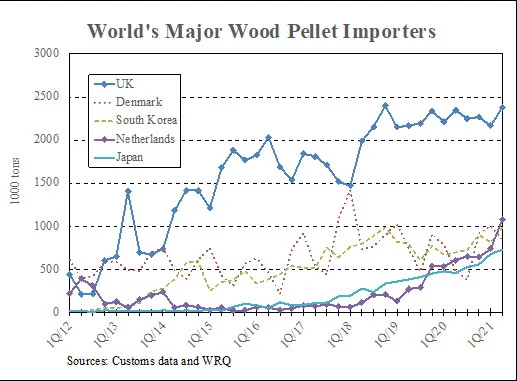Wood pellet boilers are specialized heating systems that burn compressed wood pellets as fuel, providing an efficient and eco-conscious way to heat homes or buildings.
Sustainable Fuel for a Sustainable Future: Wood Pellet Boilers in Industry
In recent years, there has been a growing recognition of the need to reduce carbon emissions and promote environmental sustainability in various sectors, including industry. One of the key contributors to carbon emissions is the use of fossil fuels for heating and energy generation. As a result, there is a growing demand for sustainable fuel alternatives that can help reduce carbon emissions and promote a greener future.
What are Wood Pellets and How are They Made?
Wood pellets are a type of biomass fuel that is made from compressed sawdust and other wood waste materials. They are typically cylindrical in shape and have a high energy density, making them an efficient and clean-burning fuel source. The process of making wood pellets involves several steps.
First, the raw materials, such as sawdust and wood chips, are collected from sawmills, furniture manufacturers, and other wood processing facilities. These materials are then dried to reduce their moisture content, which helps improve the efficiency of the pelletizing process.
Next, the dried wood waste is ground into a fine powder using a hammer mill or similar equipment. This powder is then fed into a pellet mill, where it is compressed under high pressure and heat. The heat causes the lignin in the wood to soften and act as a natural binder, holding the pellets together.
After the pellets are formed, they are cooled and screened to remove any fines or irregularly shaped pellets. Finally, the finished wood pellets are packaged and ready for use as a sustainable fuel source.
Advantages of Wood Pellet Boilers in Industry
Wood pellet boilers offer several advantages over traditional fossil fuel boilers when it comes to heating and energy generation in industry.
One of the main advantages is their high efficiency and low emissions. Wood pellets have a high energy density, which means they can produce more heat with less fuel compared to traditional fuels like coal or oil. This not only reduces fuel consumption but also lowers carbon emissions and air pollution.
Wood pellet boilers are also cost-effective and easy to maintain. While the upfront costs of installing a wood pellet boiler may be higher than traditional boilers, the long-term savings can be significant. Wood pellets are generally cheaper than fossil fuels, and their prices are more stable. Additionally, wood pellet boilers require less maintenance compared to traditional boilers, as they have fewer moving parts and do not produce as much ash or soot.
Furthermore, wood pellet boilers are versatile and compatible with existing heating systems. They can be used in a wide range of industrial applications, from small-scale heating in individual buildings to large-scale energy generation in industrial facilities. Wood pellet boilers can easily be integrated into existing heating systems, making them a convenient and flexible option for industries looking to transition to sustainable fuel sources.
Environmental Benefits
One of the key environmental benefits of wood pellet boilers is their ability to reduce carbon emissions and air pollution. When wood pellets are burned, they release carbon dioxide (CO2), but this CO2 is offset by the carbon absorbed by the trees during their growth. As a result, wood pellets are considered carbon-neutral, meaning they do not contribute to the net increase in atmospheric CO2 levels.
In addition to reducing carbon emissions, wood pellet boilers also help reduce air pollution. Compared to traditional fossil fuels, wood pellets produce lower levels of sulfur dioxide (SO2), nitrogen oxides (NOx), and particulate matter (PM). This can have significant health benefits, as exposure to these pollutants has been linked to respiratory problems, cardiovascular diseases, and other health issues.
Another environmental benefit of wood pellet boilers is that they rely on a sustainable and renewable fuel source. Wood pellets are made from waste materials generated by the forestry and wood processing industries, such as sawdust and wood chips. By using these waste materials as fuel, wood pellet boilers help reduce the amount of wood waste that would otherwise be sent to landfills or burned in open fires, contributing to air pollution.
Furthermore, wood pellet boilers help reduce dependence on fossil fuels. As the world continues to deplete its fossil fuel reserves, finding alternative energy sources becomes increasingly important. Wood pellets offer a renewable and sustainable fuel option that can help diversify energy sources and reduce reliance on finite fossil fuels.
Economic Benefits of Wood Pellet Boilers
In addition to the environmental benefits, wood pellet boilers also offer several economic advantages for industries.
One of the main economic benefits is lower fuel costs and long-term savings. Wood pellets are generally cheaper than fossil fuels like coal or oil, and their prices are more stable. This can result in significant cost savings for industries that switch to wood pellet boilers. Additionally, wood pellet boilers have higher efficiency compared to traditional boilers, which means they require less fuel to produce the same amount of heat or energy.
Another economic benefit of wood pellet boilers is increased energy independence and security. By using a renewable and locally sourced fuel source like wood pellets, industries can reduce their dependence on imported fossil fuels. This can help protect against price fluctuations and supply disruptions, providing greater stability and security in energy supply.
Furthermore, the adoption of wood pellet boilers can lead to job creation and economic growth in the wood pellet industry. As the demand for wood pellets increases, more jobs will be created in the production, distribution, and maintenance of wood pellet boilers. This can have positive economic impacts on local communities and contribute to overall economic growth.
Wood Pellet Market: Trends and Growth Prospects
The global market for wood pellets has been experiencing significant growth in recent years, driven by various factors.
One of the main factors driving the growth of the wood pellet market is increasing awareness and concern about climate change and environmental sustainability. As governments and industries around the world strive to reduce carbon emissions and promote renewable energy sources, the demand for wood pellets as a sustainable fuel alternative has been on the rise.
Another factor contributing to the growth of the wood pellet market is the increasing availability and affordability of wood pellets. As the production capacity of wood pellet manufacturers has expanded, the supply of wood pellets has increased, leading to lower prices. This has made wood pellets a more attractive option for industries looking to transition to sustainable fuel sources.
Furthermore, advancements in technology have made wood pellet boilers more efficient and reliable, further driving the growth of the wood pellet market. Improved combustion systems and automated controls have made wood pellet boilers easier to operate and maintain, making them a viable option for a wide range of industrial applications.
The future prospects for the wood pellet market look promising, with continued growth expected in the coming years. The increasing focus on renewable energy sources and the need to reduce carbon emissions will continue to drive the demand for wood pellets as a sustainable fuel alternative.
Challenges in Adopting Wood Pellet Boilers in Industry
While there are many benefits to using wood pellet boilers in industry, there are also several challenges that need to be addressed for widespread adoption.
One of the main challenges is the lack of awareness and understanding of wood pellet boilers. Many industries may not be familiar with this technology or may have misconceptions about its performance and reliability. Educating industries about the benefits and potential of wood pellet boilers is crucial for increasing awareness and promoting their adoption.
Another challenge is the high upfront costs associated with installing wood pellet boilers. While wood pellets themselves are generally cheaper than fossil fuels, the initial investment required to purchase and install a wood pellet boiler can be significant. This can be a barrier for industries with limited capital or those that are hesitant to invest in new technologies.
Additionally, there may be limited availability of wood pellets in certain regions. While the production capacity of wood pellet manufacturers has been increasing, there may still be areas where the supply of wood pellets is limited. This can make it difficult for industries in these regions to switch to wood pellet boilers.
Furthermore, there may be regulatory and policy barriers that hinder the adoption of wood pellet boilers. Some jurisdictions may have strict regulations or incentives that favor traditional fossil fuel boilers, making it more challenging for industries to transition to wood pellet boilers. Addressing these regulatory and policy barriers is crucial for promoting the widespread adoption of sustainable fuel sources in industry.
Case Studies: Successful Implementation of Wood Pellet Boilers in Industry
Despite the challenges, there are several examples of industries that have successfully adopted wood pellet boilers and reaped the benefits.
One example is the district heating system in Copenhagen, Denmark. The city has been using wood pellets as a primary fuel source for its district heating system since the 1990s. This has helped reduce carbon emissions and air pollution, while also providing cost savings for consumers. The success of Copenhagen’s district heating system has inspired other cities around the world to explore similar solutions.
Another example is the paper industry in Finland. Many paper mills in Finland have switched from using fossil fuels to wood pellets for their energy needs. This has not only reduced their carbon emissions but also helped them achieve cost savings and improve their overall sustainability performance.
The food processing industry is another sector that has successfully implemented wood pellet boilers. For example, a large food processing plant in the United States switched from using natural gas to wood pellets for its steam generation needs. This switch not only reduced their carbon emissions but also provided significant cost savings, as wood pellets were cheaper than natural gas.
These case studies highlight the benefits and challenges of implementing wood pellet boilers in various industries. While each industry may face unique challenges, the overall benefits of using wood pellet boilers are clear.
Government Policies and Initiatives to Promote Wood Pellet Boilers
To promote the adoption of wood pellet boilers and other renewable energy sources, governments around the world have implemented various policies and initiatives.
At the national level, many countries have set renewable energy targets and implemented feed-in tariffs or other incentives to encourage the use of renewable energy sources. These policies provide financial support and regulatory certainty for industries that invest in wood pellet boilers.
Internationally, there are also initiatives aimed at promoting the use of renewable energy sources. For example, the United Nations Sustainable Development Goals include a target to increase the share of renewable energy in the global energy mix. This provides a framework for countries to develop policies and strategies to promote the adoption of wood pellet boilers and other renewable energy technologies.
Furthermore, there are international certification schemes and standards for wood pellets that help ensure their sustainability and quality. These certifications provide assurance to industries that the wood pellets they are using meet certain environmental and social criteria.
By implementing these policies and initiatives, governments can create a favorable environment for the adoption of wood pellet boilers and other sustainable fuel sources in industry.
Opportunities and Challenges
The future of wood pellet boilers in industry looks promising, with opportunities for further growth and innovation.
One of the main opportunities is the potential for further growth in the wood pellet market. As the demand for sustainable fuel sources continues to increase, there will be a need for more wood pellet production capacity. This can lead to job creation and economic growth in the wood pellet industry, as well as increased availability and affordability of wood pellets.
Another opportunity is the potential for innovation in wood pellet boiler technology. Advancements in combustion systems, automation, and control systems can further improve the efficiency and reliability of wood pellet boilers. This can make them an even more attractive option for industries looking to reduce their carbon emissions and transition to sustainable fuel sources.
However, there are also challenges that need to be addressed for widespread adoption of wood pellet boilers. One of the main challenges is the limited availability of wood pellets in certain regions. Increasing the production capacity and distribution networks for wood pellets will be crucial for ensuring a stable and reliable supply.
Another challenge is the need for continued education and awareness about wood pellet boilers. Many industries may still be unfamiliar with this technology or may have misconceptions about its performance and reliability. Providing accurate and reliable information about the benefits and potential of wood pellet boilers is crucial for increasing awareness and promoting their adoption.
Furthermore, there may be regulatory and policy barriers that need to be addressed. Governments can play a crucial role in creating a favorable regulatory environment for the adoption of wood pellet boilers, through incentives, subsidies, and supportive policies.
A Sustainable Fuel for a Sustainable Future
In conclusion, wood pellet boilers offer a sustainable fuel alternative for industry, with numerous environmental and economic benefits. They have high efficiency and low emissions, making them a clean-burning fuel source that can help reduce carbon emissions and air pollution. Wood pellets are also a renewable and sustainable fuel source, reducing dependence on finite fossil fuels.
From an economic perspective, wood pellet boilers offer cost savings through lower fuel costs and long-term savings. They also provide increased energy independence and security by relying on a locally sourced fuel source. Additionally, the adoption of wood pellet boilers can lead to job creation and economic growth in the wood pellet industry.
While there are challenges to widespread adoption, such as lack of awareness and high upfront costs, these can be addressed through education, incentives, and supportive policies. The future of wood pellet boilers in industry looks promising, with opportunities for further growth and innovation.
In order to achieve a sustainable future, it is crucial for industries to increase their awareness and adoption of sustainable fuel sources like wood pellet boilers. By transitioning to these clean-burning and renewable fuel alternatives, industries can reduce their carbon emissions, promote environmental sustainability, and contribute to a greener future.
Originally posted 2024-04-04 04:10:28.






